Wiley Cash: '#StopLinkingtoAmazon'
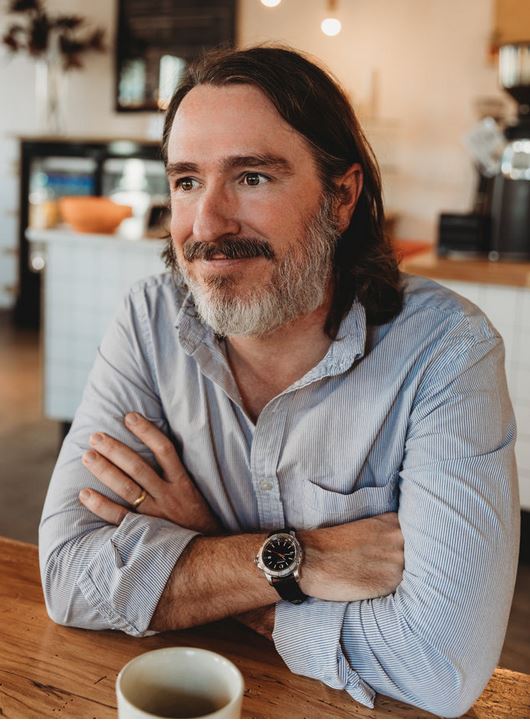

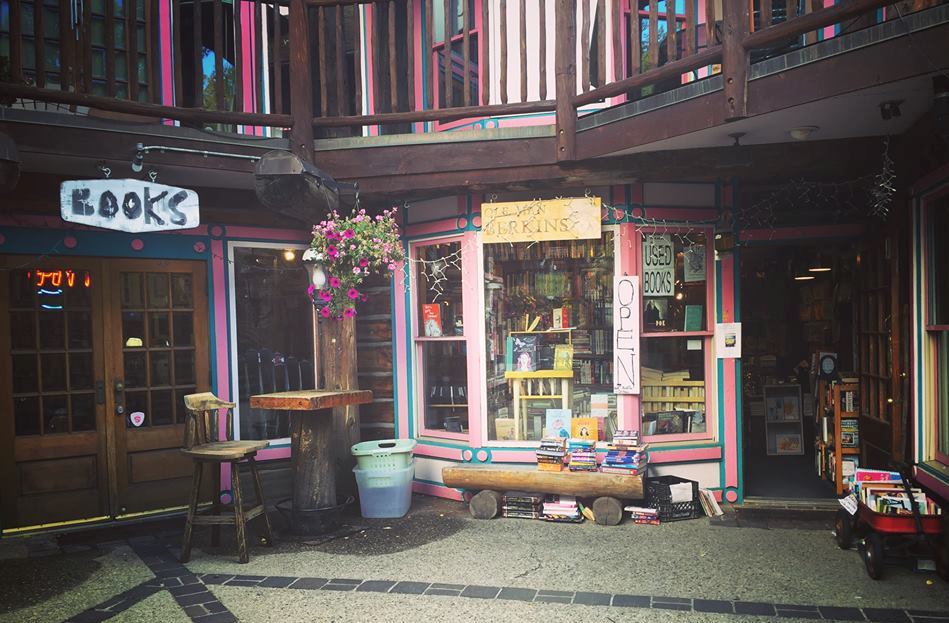 Justin Schlosberg, owner of Ole Man Berkins, a used/rare/new bookstore in Breckenridge, Colo., wants to sell the store and plans to move to Bend, Ore., where he intends to open a new bookstore.
Justin Schlosberg, owner of Ole Man Berkins, a used/rare/new bookstore in Breckenridge, Colo., wants to sell the store and plans to move to Bend, Ore., where he intends to open a new bookstore.
Ole Man Berkins has about 2,300 square feet of space and more than 100,000 books, as well as some DVDs, LPs, CDs, comics and magazines. Its specialties are new releases, the Beats, poetry, sci-fi and fantasy, classics, children's and perhaps "the second largest Louis L'Amour section north of Texas." The market consists of 4,000-6,000 year-round residents and tens of thousands of people who come to the resort town to ski and relax.
Schlosberg bought Ole Man Berkins in 2004, which was originally called Not Your Culture and was in a much smaller space. Over the years, he expanded by taking over retail spaces next to the original location.
Although he knows that Bend, Ore., has at least seven bookstores already, Schlosberg said intends to create a bookstore that would be different from what currently operates there: besides offering new and used books, he wants, he said, to offer candle-making events, a chess night, Scrabble and an open mic night as well as offer art and a literary escape room. After living in Breckenridge for almost 23 years, he is "ready for a change."
Schlosberg may be reached via e-mail or phone at 719-838-0100.
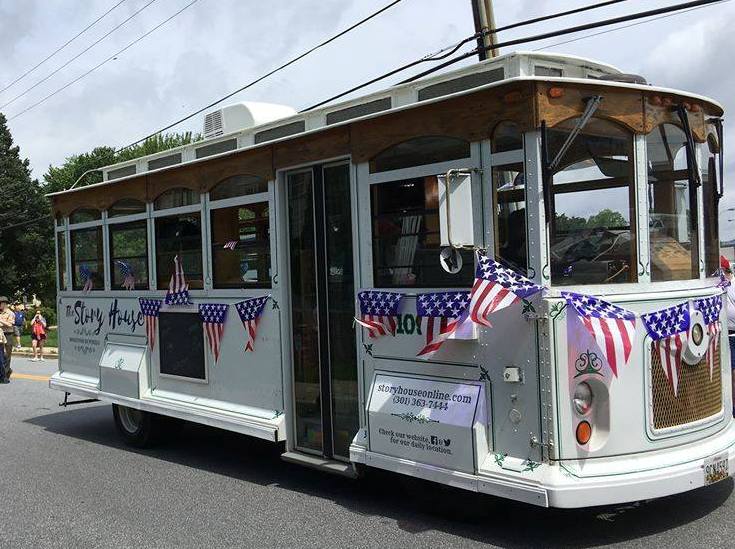 The Story House "bookstore on wheels" has opened a physical location in Rockville, Md. In a letter to customers posted on the bookseller's Facebook page, owner Debbie Cohen wrote: "After two years on the road, the Story House has decided to settle down. While the Story House Trolley is still about town bringing books into the community, we have also opened a small, bricks and mortar location within Dawson's Market in Rockville Town Center--225 North Washington Street.
The Story House "bookstore on wheels" has opened a physical location in Rockville, Md. In a letter to customers posted on the bookseller's Facebook page, owner Debbie Cohen wrote: "After two years on the road, the Story House has decided to settle down. While the Story House Trolley is still about town bringing books into the community, we have also opened a small, bricks and mortar location within Dawson's Market in Rockville Town Center--225 North Washington Street.
"In our cozy corner at Dawson's, we have an excellent selection of children and teen books, plus games and toys. It is perfect for picking up a new read or purchasing a present (we have inexpensive gift bags for your convenience). It also means that, if you place an order online, you have spot, open 8 a.m. to 9 p.m. daily, to pick it up."
The Story House trolley travels throughout the D.C. area, partnering with schools, faith groups and organizations on book fairs and other customized book events.
Bertram Group has appointed Garry Blackman, Tesco's former head of books, as buying director, effective May 1, the Bookseller reported. He succeeds Steve Potter. Bertram said the appointment is "in alignment with the group's vision to become the 'Global Bookseller of Choice.' "
"I am delighted to be joining the leadership team at Bertram Group and am looking forward to getting to know my teams, customers and reacquainting myself with all in the publishing industry," said Blackman, who will be responsible for devising and leading the group buying strategy for all U.K.-based operations, across the retail, academic supply and library supply sectors.
The wholesaler said Blackman "brings a wealth of experience and knowledge to the Bertram Group, having led numerous high profile projects and relevant departments in previous roles."
Canadian writer and artist Joe Rosenblatt, whose "iconoclastic proclivity and linguistic abandon were apparent right from the start of his long and lauded career," died March 11, Quill & Quire reported. He was 85. Rosenblatt "announced his eagerness to buck the recondite conventions of Canadian poetry with the title of his 1966 debut, The LSD Leacock, one of the first books released by Stan Bevington's Coach House Press (the house's original motto, 'printed in Canada by mindless acid freaks,' perhaps indicated a certain dovetailing of sensibilities between poet and publisher)."
"I can remember when The LSD Leacock came out. I was an English student at the University of Toronto and I had a copy. It certainly made a big impact on me," said Tim Inkster, publisher of the Porcupine's Quill, which just released Rosenblatt's last book, Bite Me!: Musings on Monsters and Mahem. Inkster added: "There was a real push to try and get the book done in time so Joe could hold it in his hand. We missed by 48 hours." Inkster also published The Bird in the Stillness (2016).
Rosenblatt won a Governor General's Literary Award for Top Soil (1976) and the B.C. Book Prize for Poetry for Poetry Hotel (1986).
"To me, he's our Blake," said poet Catherine Owen, who collaborated with Rosenblatt on the 2008 collection Dog. "He turned fish and cats and birds and frogs into demented, ectoplasmic angels."
"There can be no doubting Rosenblatt's pioneering influence on modern Canadian literature; he will be remembered for years to come," wrote Alana Wilcox, current editor of Coach House Books. "LSD Leacock stands out as one of our more important publications."
Publisher Richard observed that Rosenblatt "occupied an uncommon territory in Canadian letters, and his voice will be missed. He inhabited a sui genesis republic of vision, unrestrained by decorum, or genteel civility. Like a drunken uncle at the wedding, he delivered his singular perspective with a rarefied honesty and sophistication. He was the perennial punk who never seemed to age: who else would title his last book of poems and drawings, Bite Me? His poetry never lost its pungent punch: he spent his final years at the rim of the Pacific shore, out on the margins. In a world where artists are trained to be polite, to always draw within the lines and stay within accepted boundaries, his work and life will be remembered as being at home, in his soul's country, forever dancing on the edge."
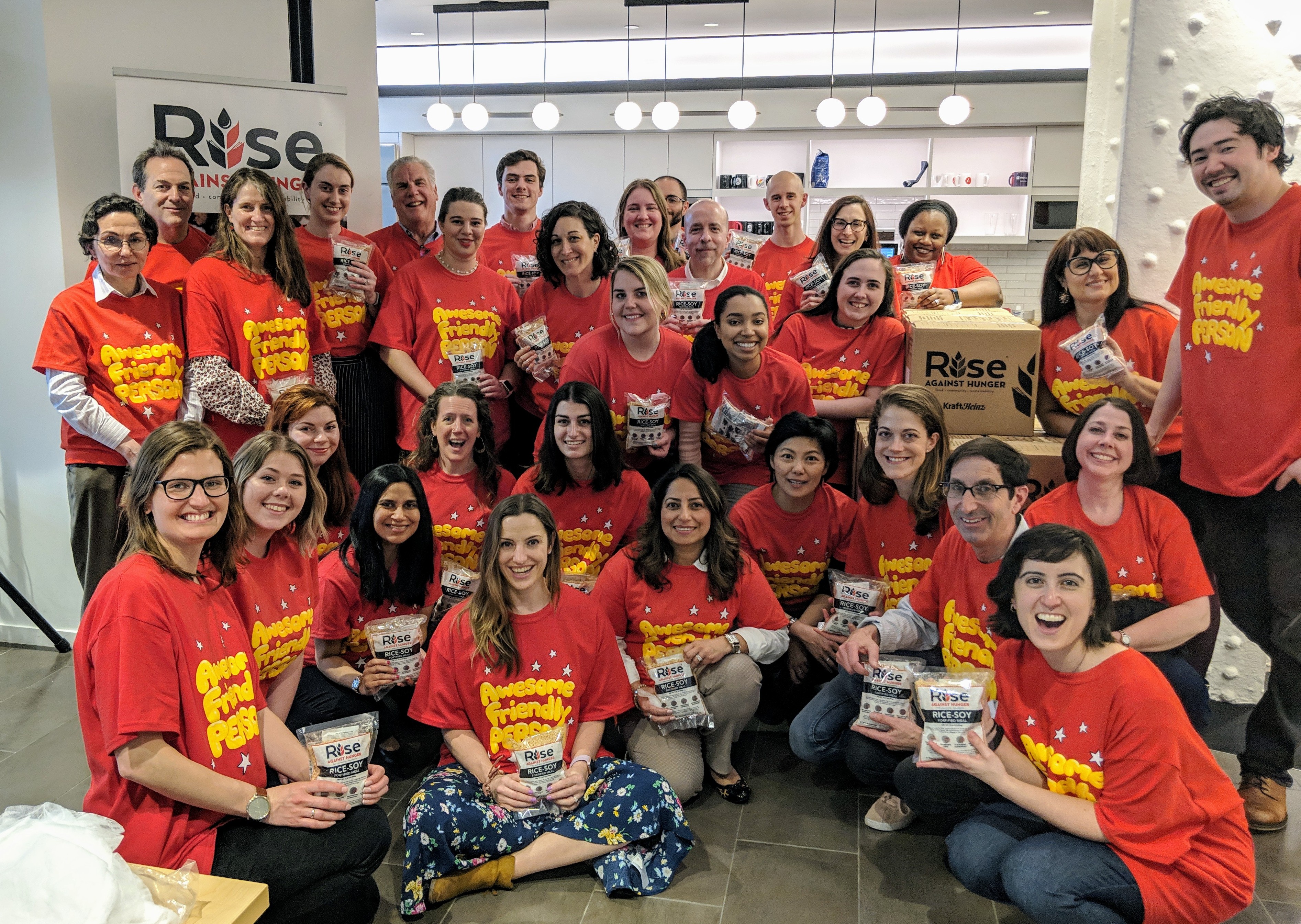 Abrams staff gather after completing a meal-packing event for Rise Against Hunger--a nonprofit hunger relief organization that distributes food and aid around the world--in honor of the publication of Diary of an Awesome Friendly Kid: Rowley Jefferson's Journal by Jeff Kinney.
Abrams staff gather after completing a meal-packing event for Rise Against Hunger--a nonprofit hunger relief organization that distributes food and aid around the world--in honor of the publication of Diary of an Awesome Friendly Kid: Rowley Jefferson's Journal by Jeff Kinney.
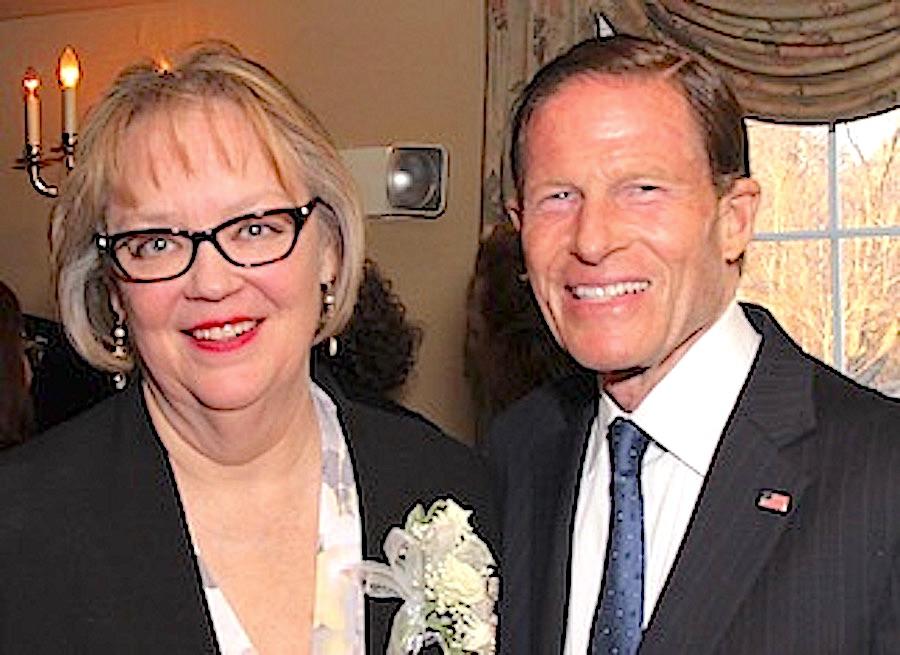 |
|
| Alice Hutchinson with Senator Richard Blumenthal (photo: Louis J. David) | |
Alice Hutchinson, owner of Byrd's Books, Bethel, Conn., was honored last Saturday with the 2019 Bill & Shannon Award for Community Service by the Bethel Democratic Town Committee. The award is presented annually to a resident who has "contributed to the growth and improvement of the town of Bethel through involvement in various civic and public activities and committees."
The award was presented by first selectman Matt Knickerbocker and Nicholas Vitti Jr., chairman of the Bethel Democratic Town Committee. In attendance were 120 local and state dignitaries, including Senator Richard Blumenthal and Lieutenant Governor Susan Bysiewicz. James H. Maloney, former Congressman 5th District and president/CEO of Connecticut Institute for Communities, celebrated Hutchinson's service with well-deserved remarks.
A member of the Bethel Democratic Town Committee since 1987, Hutchinson has served the organization as vice-chair and chairman. For 16 years, she sat on Bethel's planning and zoning commission and served as first selectman from 2003 to 2005. She opened Byrd’s Books in 2011. The bookshop is now located in Bethel's Greenwood Avenue Historic District, which is listed on the National Register of Historic Places.
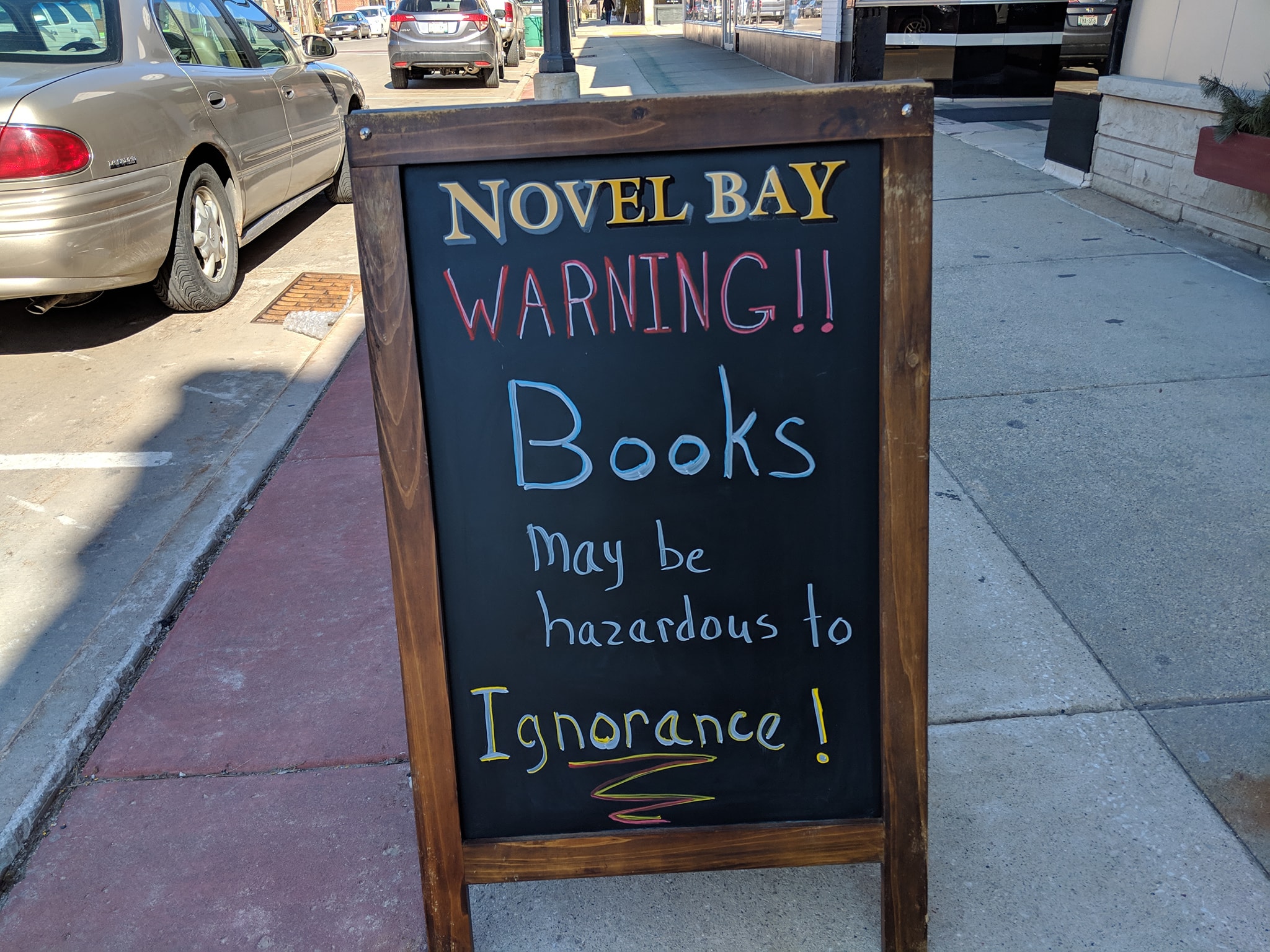 Novel Bay Booksellers, Sturgeon Bay, Wis., shared a photo of its sidewalk chalkboard, which read: "Warning!! Books may be hazardous to your ignorance!"
Novel Bay Booksellers, Sturgeon Bay, Wis., shared a photo of its sidewalk chalkboard, which read: "Warning!! Books may be hazardous to your ignorance!"
Barnes & Noble has chosen Lost Roses by Martha Hall Kelly (Ballantine Books) as its April national book club selection. The novel will be the focus of a book club night at B&N stores around the country on Tuesday, May 7, at 7 p.m.
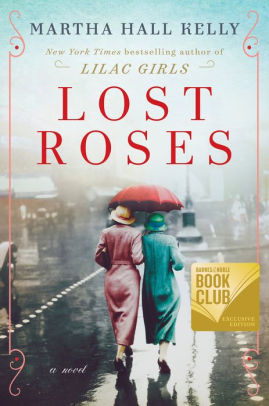 B&N noted that the author's "bestselling Lilac Girls introduced the real-life heroine Caroline Ferriday. Now Lost Roses, set a generation earlier and also inspired by true events, features Caroline's mother, Eliza, and follows three equally indomitable women from St. Petersburg to Paris under the shadow of World War I."
B&N noted that the author's "bestselling Lilac Girls introduced the real-life heroine Caroline Ferriday. Now Lost Roses, set a generation earlier and also inspired by true events, features Caroline's mother, Eliza, and follows three equally indomitable women from St. Petersburg to Paris under the shadow of World War I."
Liz Harwell, B&N's senior director of merchandising, trade books, called Lost Roses "a thought-provoking, page-turning story of political and personal revolution that will have readers everywhere talking about the lengths people will go to protect others, family and strangers alike."
B&N's book club edition of Lost Roses includes an afterword from Kelly, featuring "a deeply personal look at the many travels and journeys she took researching the history and the characters for Lost Roses and Lilac Girls." For more information on the event, click here.
Karlee Nussbaum has joined Women & Children First, Chicago, Ill., in the newly created position of outreach and sales liaison and will have a special focus on partnering with community organizations and schools as well as heading the store's new pre-order campaign initiative. She taught Spanish in Chicago Public Schools as part of Teach for America for two years and has experience doing curriculum development work in a nonprofit setting.
---
Mary Duke has been hired as a marketing manager for children's at Chronicle Books. Previously, she was a marketing associate at HarperOne.
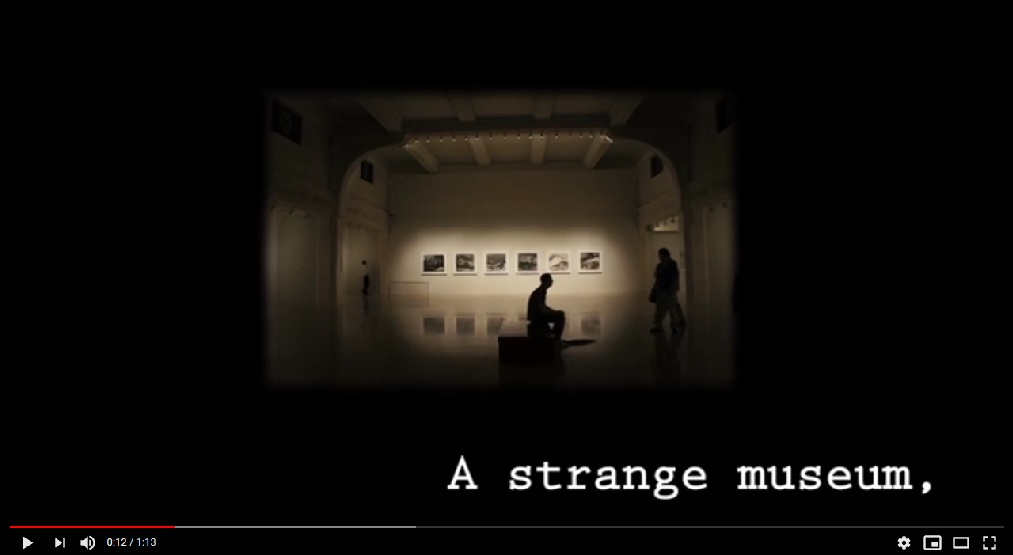 The Ambrose J. and Vivian T. Seagrave Museum of 20th Century American Art: A Novel by Matthew Kirkpatrick (Acre Books).
The Ambrose J. and Vivian T. Seagrave Museum of 20th Century American Art: A Novel by Matthew Kirkpatrick (Acre Books).
Today:
Fresh Air: Emily Bazelon, author of Charged: The New Movement to Transform American Prosecution and End Mass Incarceration (Random House, $28, 9780399590016).
Tomorrow:
Watch What Happens Live: Chelsea Handler, author of Life Will Be the Death of Me: . . . and you too! (Spiegel & Grau, $27, 9780525511779).
Tonight Show: Tracy Pollan, co-author of Mostly Plants: 101 Delicious Flexitarian Recipes from the Pollan Family (Harper Wave, $29.99, 9780062821386).
A trailer and some first-look photos have been released for Armistead Maupin's Tales of the City, the Netflix limited series starring Laura Linney, Ellen Page, Paul Gross and Olympia Dukakis "in a new chapter of the popular story," Deadline reported. It will premiere June 7.
Linney, Gross and Dukakis are reprising the roles they played in three previous miniseries based on Maupin's books: Tales of the City (1993), More Tales of the City (1998) and Further Tales of the City (2001).
In the latest incarnation, "Mary Ann (Linney) returns to present-day San Francisco and is reunited with her daughter Shawna (Page) and ex-husband Brian (Gross), 20 years after leaving them behind to pursue her career," Deadline wrote. "Fleeing the midlife crisis that her picture-perfect Connecticut life created, Mary Ann quickly is drawn back into the orbit of Anna Madrigal (Dukakis), her chosen family and a new generation of queer young residents living at 28 Barbary Lane."
Finalists have been announced for the 2019 Man Booker International Prize, which "celebrates the finest works of translated fiction from around the world." The £50,000 (about $65,200) award is divided equally between author and translator of the winning entry. This year's winner will be named May 21 in London. The shortlisted titles are:
Celestial Bodies by Jokha Alharthi (Oman), translated by Marilyn Booth
The Years by Annie Ernaux (France), translated by Alison L. Strayer
The Pine Islands by Marion Poschmann (Germany), translated by Jen Calleja
Drive Your Plow Over the Bones of the Dead by Olga Tokarczuk (Poland), translated by Antonia Lloyd-Jones
The Shape of the Ruins by Juan Gabriel Vásquez (Colombia), translated by Anne McLean
The Remainder by Alia Trabucco Zerán (Chile), translated by Sophie Hughes
---
The finalists for the 2019 Sami Rohr Prize for Jewish Literature, sponsored by the Jewish Book Council and honoring "emerging writers who explore the Jewish experience and demonstrate the potential for continued contribution to Jewish literature," are:
Rachel Kadish, author of The Weight of Ink (Houghton Mifflin Harcourt)
Michael David Lukas, author of The Last Watchman of Cairo (Spiegel & Grau)
Dalia Rosenfeld, author of The Words We Think We Know (Milkweed Editions)
Mark Sarvas, author of Memento Park (Farrar, Straus & Giroux)
Margot Singer, author of Underground Fugue (Melville House)
The winner and runnersup will be announced in early May.
---
Eleven books for adults and young people, along with nine winning TV/Cable programs and feature films, will be celebrated May 23 at the 70th annual Christopher Awards, which honor writers, producers, directors, authors and illustrators whose work "affirms the highest values of the human spirit" and reflects the Christophers' motto: "It's better to light one candle than to curse the darkness." This year's winning book titles are:
Adults
Everything Happens for a Reason: And Other Lies I've Loved by Kate Bowler (Random House)
Frederick Douglass: Prophet of Freedom by David W. Blight (S&S)
One Beautiful Dream by Jennifer Fulwiler (Zondervan)
The Strange Case of Dr. Couney by Dawn Raffel (Blue Rider Press)
The Sun Does Shine by Anthony Ray Hinton, with Lara Love Hardin (St. Martin's Press)
Young people
Eraser by Anna Kang, illustrated by Christopher Weyant (Two Lions)
The World Is Awake by Linsey Davis with Joseph Bottum, illustrated by Lucy Fleming (Zonderkidz)
Rescue and Jessica by Jessica Kensky & Patrick Downes, illustrated by Scott Magoon (Candlewick)
The Ostrich and Other Lost Things by Beth Hautala (Philomel Books)
To the Moon by Jeffrey Kluger with Ruby Shamir (Philomel Books)
Tight by Torrey Maldonado (Nancy Paulsen Books)
The two most popular books in March at Reading Group Choices were I Am Not Your Perfect Mexican Daughter by Erika Sánchez (Ember) and When All Is Said by Anne Griffin (Thomas Dunne Books).
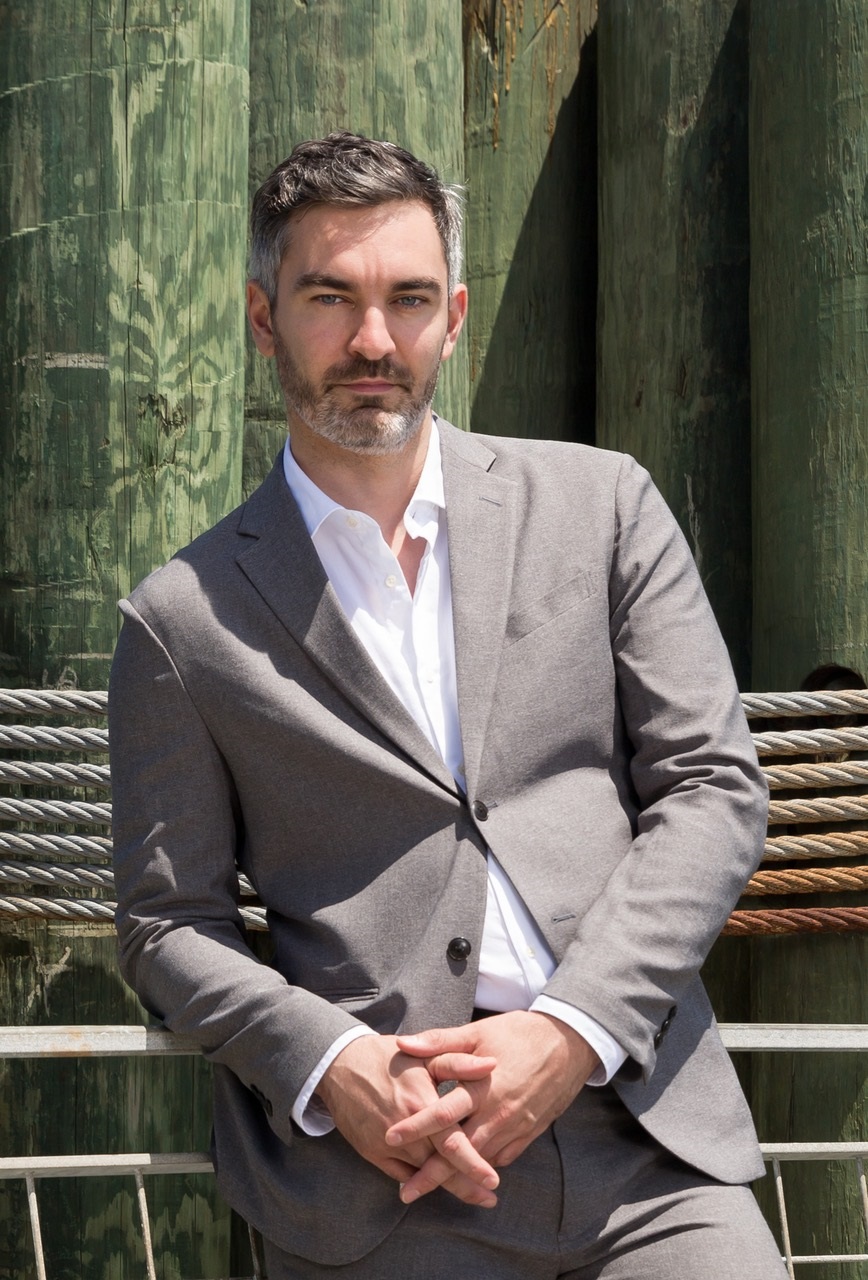 |
|
| photo: Beowulf Sheehan | |
Evan James grew up on Bainbridge Island, Wash., where his debut novel, Cheer Up, Mr. Widdicombe (Atria, March 26, 2019), is set. His essays have appeared in Oxford American, the New York Times, Travel + Leisure and many other publications. He has an MFA in fiction from the Iowa Writers' Workshop and lives in New York. He teaches creative writing to middle and high schoolers in Connecticut.
On your nightstand now:
Wit's End by James Geary, The Gentrification of the Mind by Sarah Schulman, Can't Stop, Won't Stop: A History of the Hip-Hop Generation by Jeff Chang, Seven Nights by Borges. I'm dipping in and out of things right now, and I like to read around on a lot of different topics. I'm about to go on book tour, so I plan on picking up very short books along the way that I can read on flights.
Favorite book when you were a child:
When I was really young, I had a copy of the Little Golden Books edition of The Color Kittens by Margaret Wise Brown. I adored that book! In my memory it's about a couple of kittens in painters' suits getting wild with colorful paint.
Your top five authors:
Impossible! Evelyn Waugh and P.G. Wodehouse were definitely touchstones for me when I started writing my novel, as was Oscar Wilde. I love writers with a powerful sense of structure and irony. And those who write brilliant dialogue. When I first started writing for newspapers, I was besotted with the great New Yorker humorists of yore: S.J. Perelman, Dorothy Parker, Robert Benchley, James Thurber. Tennessee Williams remains significant to me. I've gone way past five. All these people are dead, but I like a lot of living authors, too.
Book you've faked reading:
I try to lie to people a little less every year. I mean, I haven't read Wuthering Heights, 1984 or The Brothers Karamazov, but it doesn't keep me up at night. I wouldn't lie about it. I'll read them at some point--hopefully. I did once lie to someone in a bar about having read Samuel Delany's Dhalgren. A pretty bold one--I don't know how I managed to fake my way through having read a major science fiction epic, but it's easier to lie in loud places like bars.
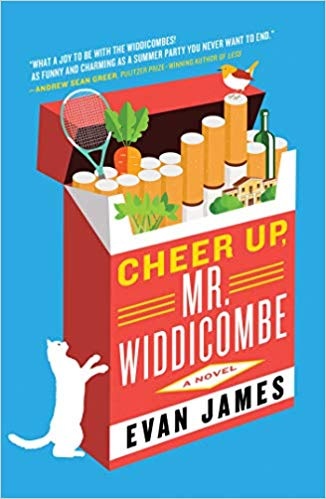 Book you're an evangelist for:
Book you're an evangelist for:
When I worked in bookstores, I would often try to sell people on Mrs. Bridge by Evan S. Connell, about the life of an upper-middle-class Kansas City family between the World Wars. It astonished me the first time I read it. It's a beautifully crafted book and still feels totally fresh and fascinating to me. Another is Memoirs of Hadrian by Marguerite Yourcenar--a masterful and profound novel.
Book you've bought for the cover:
I probably bought The Musical Brain by César Aira for the cover. I'm interested in his work anyway, but there's no cover quite like it. It's a lenticular print; the effect is like one of those animated neon signs. I keep it face up on a low shelf in my apartment so that I can watch it doing its thing when I walk by.
Book you hid from your parents:
God, I hid so much from my family. I could be an obsessively private kid. In early Internet days, my other young teenage friends were excited about The Anarchist Cookbook, which was apparently circulating online and had instructions for making homemade explosives and LSD. One of them let me borrow some of the pages, which I'm sure I hid. I also had a habit of reading books about sex and sexuality at the Bainbridge Library.
Book that changed your life:
Don Quixote. I picked it up in my mid-20s after I had decided to devote myself more seriously to reading and writing. I was fully prepared to slog through an old classic--and it did become a slog several hundred pages in. At the beginning, though, I couldn't believe how riotous and chaotic the humor was. It also set the stage for my ongoing interest in books about people who are possessed by ideas.
Favorite line from a book:
Here's one: " 'Muffins stand for so much,' said Jenny." That's from Evelyn Waugh's A Handful of Dust. Another, from Gogol's story "The Nose": "Perfect nonsense goes on in the world."
Five books you'll never part with:
A Handful of Dust by Evelyn Waugh, Memoirs of Hadrian by Marguerite Yourcenar, The Leopard by Giuseppe di Lampedusa, Mawrdew Czgowchwz by James McCourt and Ward Farnsworth's Classical English Rhetoric. I love books that are concerned with the ache of the passage of time in some way. I'm also drawn to flamboyant style (see McCourt). The Farnsworth is one of the best books for writers on the topic of rhetorical craft that I've ever picked up.
Book you most want to read again for the first time:
Two Serious Ladies by Jane Bowles. Another revelation at the time. It's one of those books that remind you that literature is full of distinct, singular triumphs of style and aesthetic vision.
Hair Love by Matthew A. Cherry, illus. by Vashti Harrison (Kokila/Penguin, $17.99 hardcover, 32p., ages 4-8, 9780525553366, May 14, 2019)
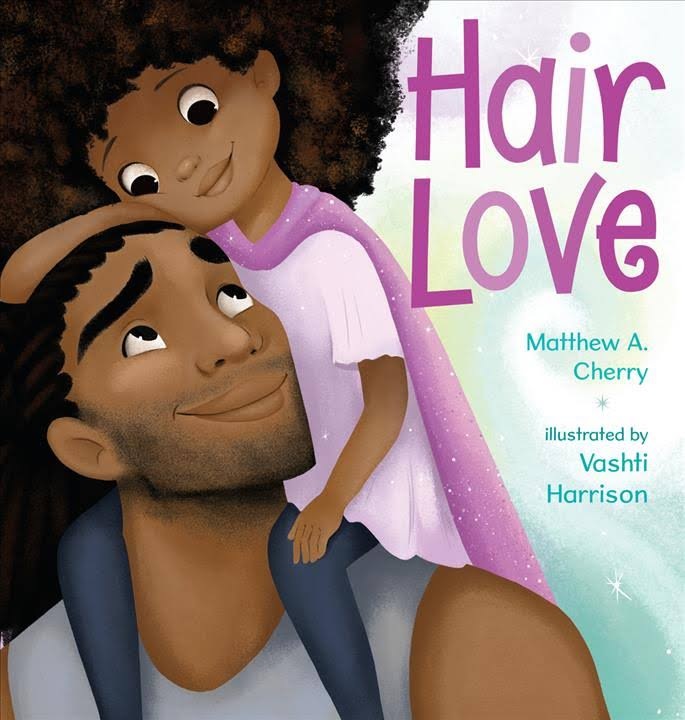 Matthew A. Cherry wears many hats as a film director, producer and editor. With his debut picture book, Hair Love, he can now add children's book author to that list. A colorful collaboration with illustrator Vashti Harrison (Little Leaders), Hair Love was inspired by an animated short of the same name created by Cherry to spotlight the lack of appreciation for African American textured hair in animation. He's transitioned the story from film to page, and the result is an ode to the incredible versatility of African American hair and the charming resilience of a dad dedicated to his daughter.
Matthew A. Cherry wears many hats as a film director, producer and editor. With his debut picture book, Hair Love, he can now add children's book author to that list. A colorful collaboration with illustrator Vashti Harrison (Little Leaders), Hair Love was inspired by an animated short of the same name created by Cherry to spotlight the lack of appreciation for African American textured hair in animation. He's transitioned the story from film to page, and the result is an ode to the incredible versatility of African American hair and the charming resilience of a dad dedicated to his daughter.
Zuri is a young African American girl who introduces readers to her fabulous hair, which "kinks, coils, and curls every which way." Harrison's dreamy digital artwork showcases Zuri's different styles, including a 'fro that literally sparkles, intricate braids and afro puffs that look as soft as the curling clouds that border the page. There's even a nod to the "magic" of shrinkage, when stretched or straightened hair curls up tight and "shrinks" after getting wet. Using before and after visual vignettes, Zuri explains, "From large to small it went. Presto! Just like that! There is nothing my hair can't do!"
This morning, Zuri wants "a perfect hairstyle" for a big event happening later in the day. She slips past her sleeping Daddy to research a special style; he wakes to find her camped out in the bathroom. " 'Can I help?' " Daddy asks, " 'It'll be a piece of cake.' " This overly optimistic statement kicks off a journey through various hairstyles that, one after another, unfortunately do not work out. When an empowered Zuri vetoes a final attempt by her dad to pick out her hair ("Daddy, really?"), he leaves and comes back with... a hat. After Zuri tearfully explains that she needs the right hair to match this special day, a full-page illustration of her and Daddy facing each other against a background of star-studded pastels shows her eureka moment--she has a great idea! With the help of a hair blogger, pictured essential natural hair tools (wide-toothed and rattail combs, bobby pins, no-metal elastics, gels and oils) plus a determined Daddy sweating bullets to make sure he gets it right, Zuri emerges with the perfect style to impress on this special day: Mommy is coming home!
Although Zuri is the only one who literally wears a cape, both she and her father stand as heroes supporting each other and working together to save the day. Nuanced illustrative touches, like family pictures of graduations and weddings, alongside Daddy's own immaculate locs, paint a larger picture of the connected African American family that lives and loves together in their home. An added bonus is their cat, Rocky, whose human-like facial reactions to some of the hair fails are hilarious. --Breanna McDaniel, reviewer
Shelf Talker: This delightful debut encourages self-affirmation and celebrates a loving, respectful relationship between a nurturing father and his cool, confident daughter.